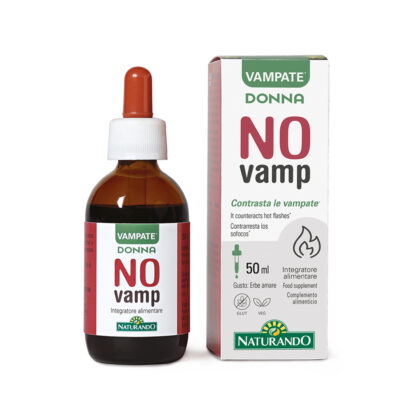
Hot flashes, excessive sweating, irritability, weight gain… are the first signs of menopause. For some women, these kind of disorders can be particularly intense, affecting even normal daily activities. Fortunately, Nature offers us several plants and natural remedies to manage the disorders of menopause with a natural approach.
The physiological moment
Menopause is a physiological moment in each woman, where ovarian activity is reduced, resulting in reduced oestrogen levels. Estrogens are typical female organism’s hormones, which regulate the sexual maturation, fertility and development of female secondary characters.
Menopause typically occurs between 45 years and 55 years and gradually arises over a period of time ranging from 5 to 10 years (climatery), characterised by irregular menstrual cycles or by total absence.
Menopause: the Disorders
The reduction of oestrogen levels leads to the occurrence of several disorders. Some of them occur at the beginning of menopause, or even during the climacteric, others emerge after years.
Early disturbances involve different spheres and are often the most annoying. These include hot flashes, which are the most debilitating discomfort, accused by 88 % of women in menopause.[1].
In addition to irritability, unstable mood, sleep disorders and disorders involving the sexual sphere, such as vaginal dryness and decreased libido.
Late disorders, though less annoying for the woman, may have more serious consequences for the body. Such as the increased incidence of osteoporosis, which may increase the risk of bone fracture, or the alteration of the lipid profile, with increased cholesterol and triglyceride levels, which may have consequences for the cardiovascular system.
Natural Remedies for Menopause
Nature helps women in menopause with different plants and natural remedies. However, we must not limit ourselves to alleviating early and more annoying disorders, but it is also good to remember late disturbances. For this reason, it is useful to intervene with a complete nutraceutical approach. By associating, for example, substances that counteract menopause disorders such as Soy, Dioscorrea and Cimicifuga to substances specific to individual discomforts.
For example, it is useful to associate Magnesium, Vitamin D and Calcium to support the well-being of the bones and avoid unpleasant consequences. In addition, Magnesium regulates the normal functioning of the nervous system. For a greater effect on the emotional component, substances that promote relaxation and mental well-being, such as Passiflora, can be associated.
What if the hot flashes don’t decrease?
When hot flashes are so annoying as to limit everyday life an approach like that of before may not be enough.
In this case it is possible to associate a supplement based on specific substances against hot flashes, such as Hops, which, together with Sage, regulates sweating in menopausal women. For this specific disorder it may be convenient to choose a liquid supplement, which promotes rapid absorption of the components, for an intake as needed.
Edited by Dr. Laura Rubini
[1] Results of the ISTISAN report of the Italian Istituto Superiore di Sanità, on the project “Know Menopause”




